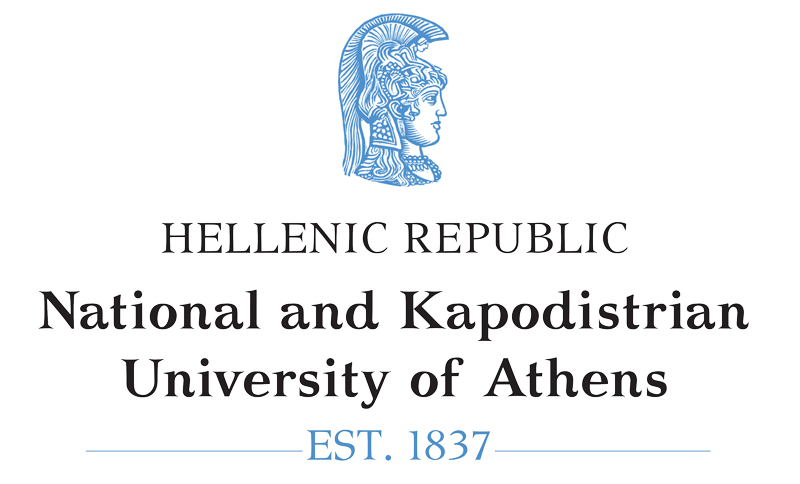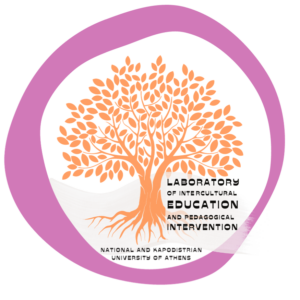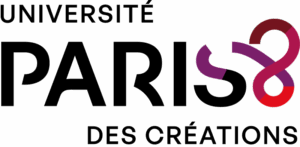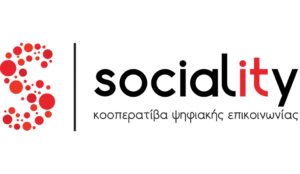PROJECT PARTNERS


Laboratory of Intercultural Education and Pedagogical Intervention
The National and Kapodistrian University of Athens is the largest state institution of higher education in Greece, and among the largest universities in Europe. As all other Greek universities, it is a self-governed legal entity of public law and all major policy issues are determined by the Ministry of National Education and Religion. Retaining its academic autonomy, it fully respects the constitutionally secured right to everyone for a free education. This is possible because it is funded by the state. Moreover, it is progressively succeeding to benefit from its property and legacies, as well as from the funding of research projects with national and international partners. All funds are invested into the management and operation of educational, research and cultural programmes, into student and staff services and grants. With a student body of about 125000 undergraduate and postgraduate students, over 2000 members of academic staff and approximately 1300 administrative and secretarial staff and specialised personnel, the University of Athens aims at excellence in both teaching and research in a significantly varied range of disciplines. NKUA has a notable contribution on the advancement of social cohesion, sustainable development and the principles of democracy, ethics and cultural diversity. It has launched many initiatives that aim at advancing intercultural understanding among different stakeholders.
The Laboratory of intercultural education and pedagogical intervention is a hub for collaboration with international research centres and institutions in the areas of multicultural education, teacher training and multimodal methodologies. It has acted as an advisory body in committees on educational integration and implemented long-term research and educational interventions, e.g.: the largest program of minority education in Greece (“Education of Muslim children’s minority in Greece”/MUSEDUC, 1997-2019); mentoring initiatives in intercultural schools and refugee camps (2010-2020); teacher training for over 2000 teachers who work with migrant/refugee students (Teach4Integration, 2019-2023, funded by UNICEF).

Department of Ethnology, Faculty of History
Sofia University “St. Kliment Ohridski” is the largest university in Bulgaria. Sofia University St. Kliment Ohridski is the main national high academic, research, cultural and information center of high international reputation. The University is exemplary in terms of its scientific research and educational activities, both of them enjoying wide cultural and social significance. It forms the nucleus of the Bulgarian scientific and cultural elite and enlightens the Bulgarian national self-consciousness. The University contributes significantly to the Bulgarian participation in the global development of science and education and plays an active role in preparing and conducting policies of national, regional and international significance. Sofia University St. Kliment Ohridski has the mission to safeguard, enrich and carry through the centuries the spirit of knowledge and the aspirations of humanity to knowledge and truth. The University is the center of the development of science and the education of students in all domains of life; it also cultivates highly educated, nationally responsible personalities who will lead the Bulgarian nation to spiritual feats and social welfare.
The Faculty of History is part of it. The faculty has 92 full-time teaching staff and several PhD programs. More than half of the teaching staff is full professors or associate professors. There are four main subfields taught at the faculty – Archaeology, Archival Studies, Ethnology, and History. In all of them the faculty tops the national rating charts. The Department of Ethnology, where the team members are affiliated, received the highest national score during the last accreditation procedure, conducted under the auspices of the Ministry of Education. The main research fields taught there are ethnography, political and economic ethnology, ethnology of education and ethnic and religious minorities. During the last accreditation period the permanent staff and the young scholars affiliated to the department received more than 4 mln. BGN (approximately 2 million euro) of funding for various research projects, financed by European or national institutions. The Department of Ethnology owns a large archive of ethnographic data and its staff and students have full access to the resources of University and Faculty libraries. The Faculty of History has the necessary equipment for project implementation, including a Centre for Digitalization of Research Products, audio-visual equipment, etc.


Experice, a transdisciplinary laboratory in Educational Sciences, Institutional Pedagogy and Institutional Analysis
The University Paris 8 Vincennes–Saint-Denis is a Higher Education Institution and a Research center in the fields of Humanities, Social Sciences, Arts, Law, Computer Sciences and Economic Sciences. With over 30% of international students among its 22,000 ones, the University of Paris 8 is actually the most international of French universities, a fact that gave birth to the concept of “world university” that defines it today. It was originally created in 1969 with the Experimental Centre of Vincennes. It resulted from the intellectual and pedagogical effervescence that followed May 68. Since then, it has been driven by a spirit of democratisation of access to knowledge and the production of knowledge rooted in the challenges of the contemporary world. Since its creation and its relocation in Saint-Denis in 1980, University Paris 8 is a central teaching and research centre in the Île-de-France region in the field of arts and humanities. University Paris 8 embodies the values of “success and social promotion, experimentation and criticism, and democratic life”.
Experice is a transdisciplinary laboratory in Educational Sciences. Institutional Pedagogy and Institutional Analysis, linked with other emancipatory practices in education and culture, are permanent objects of inquiry in Experice. The lab develops research in the field of language in the perspective of a general semiotics of culture and education, and of translinguistic identities (creolisation) by means of both theory and teaching (immersive bilinguism, etc.). Both formal and informal approaches of education support the questioning of lifelong and cooperative practices in education and its application to sociopolitical situations such as migration problematics, both inside and outside the academic system. Experice employs “action research” to help social actors reach self-training, self-assertion of their skills, practice and relevance by the collection, analysis and dissemination of practical, theoretical and existential discourses, where researchers are themselves in a cooperative, reflexive and mutual-analysing, position with other actors.

Athens-based Cooperative working on digital technologies
Sociality Cooperative is a worker’s cooperative based in Athens, Greece, which was established in 2014. Sociality has a broad range of expertise in web and app development, system administration, and human-centric design and technology research. Sociality focuses on empowering the online presence of organizations and companies and is adept at creating digital solutions that help businesses and non-profits achieve their goals in the digital realm. The cooperative has worked as a participant in several research projects (funded by European and national initiatives) and providing education on digital marketing and open-source web development further demonstrates the cooperative’s commitment to staying up-to-date with the latest trends and best practices in the industry.
During its operation, Sociality has created over 150 websites, organized over 40 workshops, and managed several online campaigns. These achievements demonstrate the ability to deliver high-quality results for their clients and partners. It is also worth noting the cooperative’s involvement in several European programs and community initiatives, including the Synergy project which is a financial toolkit for CoOps operating on a distributed ledger financed by the NGI Ledger Program and for which the cooperative have received grants and awards from the EU Next Generation Internet program. Sociality is considered a leading example of technology cooperative and also one of the companies at the forefront of technological innovation with a commitment of using their expertise to support socially responsible initiatives and human-centric design. With a number of ongoing projects related to education and digital humanities studies (sociality.gr/research/), Sociality Cooperative is a versatile and accomplished organization with a strong track record of delivering value to its clients and partners.

PROJECT ASSOCIATED PARTNERS
Apart from the four main partners, there are three associated partners that will join their efforts towards the implementation of VOLARE.
The Aegean Observatory of the Refugee and Migration Crisis will support the project by providing feedback on the presentation of data and in the final phase of dissemination and sustainability of the repository. The objective of the Aegean Observatory of the Refugee and Migration Crisis is the systematic recording of multiple dimensions of the refugee and migration crisis.
The Contemporary Social History Archives (ASKI) will share their expertise in collecting, curating and archiving the research and educational material of the project and partake in the Ethics and Advisory Committees of the project. ASKI is the leading Greek archival institution for the history of political and social movements.
The Research Unit for the History of Migrant and Refugee Movements at the Panteion University will offer feedback on the historical evidence curated in the repository and partake in the dissemination activities and in safeguarding the future sustainability of the repository.